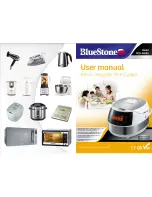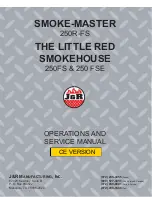
20
Energy and environment tips
Here you can find tips on how to save energy when baking and
roasting in the oven and when cooking on the hob, and how to
dispose of your appliance properly.
Saving energy
■
Only preheat the oven if this is specified in the recipe or in
the tables in the instruction manual.
■
Use dark, black lacquered or enamelled baking tins, because
they absorb heat particularly well.
■
Open the oven door as infrequently as possible while the
food is baking and roasting.
■
For longer cooking times, the oven can be turned off
10 minutes before the end of the cooking time, and the meal
can be finished using residual heat.
Saving energy with the gas hob
■
Always use a saucepan which is the correct size for your
food. A larger, less full saucepan requires a lot of energy.
■
Always place a suitable lid on the saucepan.
■
The gas flame must always be in contact with the base of the
saucepan.
Environmentally-friendly disposal
Dispose of packaging in an environmentally-friendly manner.
Tested for you in our cooking studio.
Here you will find a selection of dishes and the ideal settings for
them. We will show you which type of heating and which
temperature are best suited for your dish. You can find
information about suitable accessories and the height at which
they should be inserted. There are also tips about cookware
and preparation methods.
Notes
■
The values in the table apply to dishes placed into the
cooking compartment when it is cold and empty.
Only preheat the appliance if the table specifies that you
should do so. Line the accessories with greaseproof paper
before preheating.
■
The times specified in the tables are guidelines only. They will
depend on the quality and composition of the food.
■
Use the accessories supplied. Additional accessories may be
obtained as special accessories from specialist retailers or
from the after-sales service.
Before using the appliance, remove all accessories from the
cooking compartment that you will not be using.
■
Always use oven gloves when taking hot accessories or
ovenware out of the cooking compartment.
■
Your oven is suitable for baking on one level.
Caution!
The appliance was manufactured to suit the reference gases
specified in the standards. If a gas is used which does not
comply with the specified gas mixture and pressure, cooking
performance and heat output may not produce the desired
result.
Cakes and pastries
Cake tins
When you are baking in the cake tin, insert the wire rack at the
level indicated and place the cake tin on the wire rack.
Dark-coloured cake tins are the most suitable.
If you use light-coloured baking tins or glass, the baking time
increases and the cake is not browned evenly.
Only use heat-resistant glass dishes. Do not place a hot glass
dish on a cold or wet surface. The glass could break.
If you want to use silicone moulds, follow the guidelines in the
manufacturer's instruction manual. Silicone moulds turn out
slightly smaller than normal cake tins. For this reason, the
quantities may be slightly different to those indicated in your
recipe.
This appliance is labelled in accordance with
European Directive 2012/19/EU concerning used
electrical and electronic appliances (waste electrical
and electronic equipment - WEEE). The guideline
determines the framework for the return and recycling
of used appliances as applicable throughout the EU.
Name of the gas
Gas mixture (%)
G20
CH
4
= 100
G25
CH
4
= 86, N
2
= 14
G30
n-C
4
H
10
= 50, i-C
4
H
10
= 50
Summary of Contents for HGG22B120T
Page 1: ... en Instruction manual Free standing cooker HGG22B120T ...
Page 2: ......





































